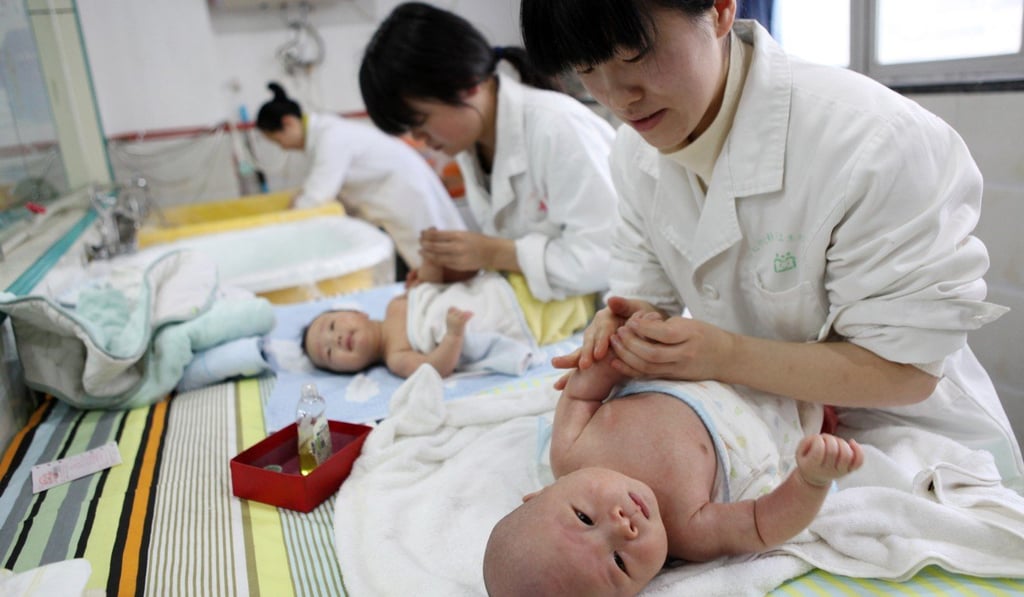China birth numbers expected to fall to lowest level since 2000, creating new economic and social challenges
- Births last year will drop below 15 million despite Beijing’s relaxation of its one-child policy, according to the state-run tabloid ‘Global Times’
- Increasing elderly population raising fears of economic stagnation despite introduction of two-child policy in 2016

The number of children born in China in 2018 is expected to have dropped to the lowest level since 2000 after a year that “will be remembered as a historical turning point for Chinese population”, signalling a “demographic crisis” that threatens already struggling economic growth prospects, mainland media and researchers said.
The final figure for China births in 2018 will drop below 15 million, or more than two million fewer than in 2017, the state-run tabloid Global Times reported.
If confirmed, it will fall far short of the family planning authority’s previous estimates of up to 20 million births.
China’s National Bureau of Statistics is expected to release nationwide birth figures for 2018 later this month, but data released by local authorities has all pointed to a considerable drop in births.
Yi Fuxian, a researcher at the University of Wisconsin-Madison and a long-standing critic of China’s family planning policy, and Su Jian, an economist at Peking University, co-authored a paper arguing that China may have started to see a long-lasting fall in its population.
